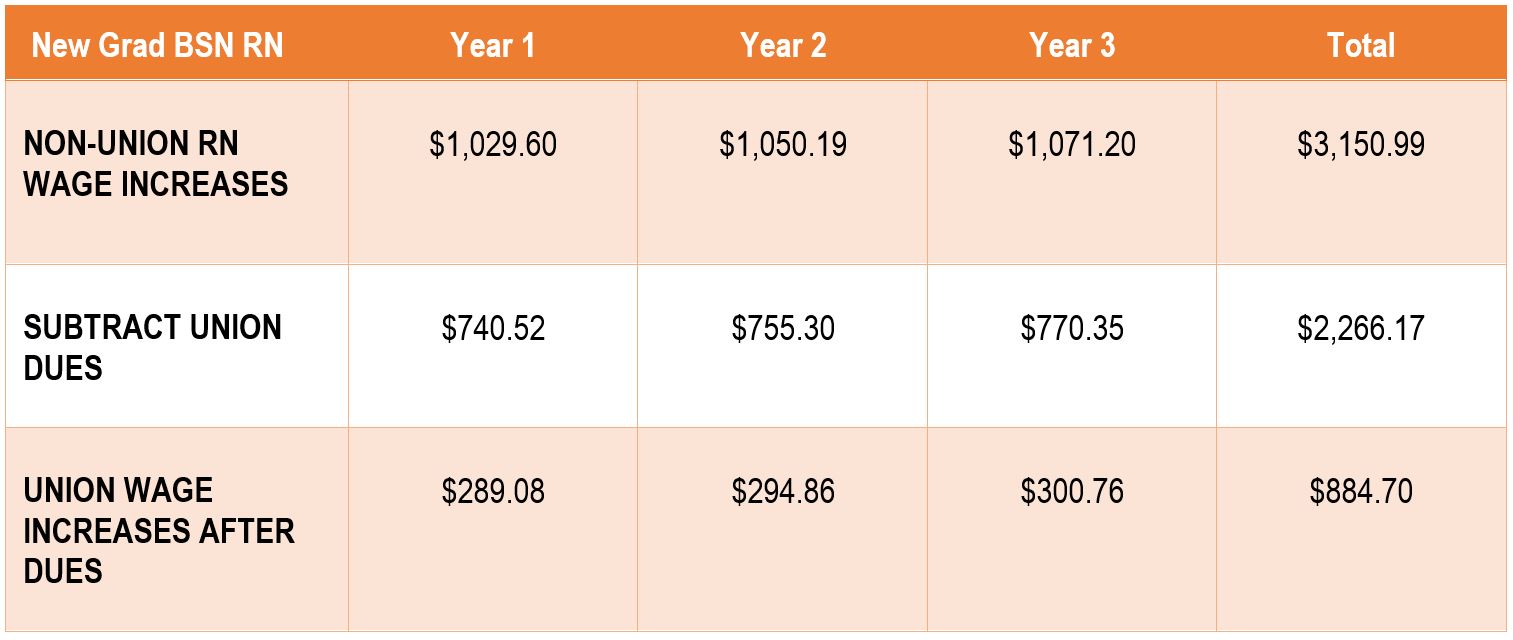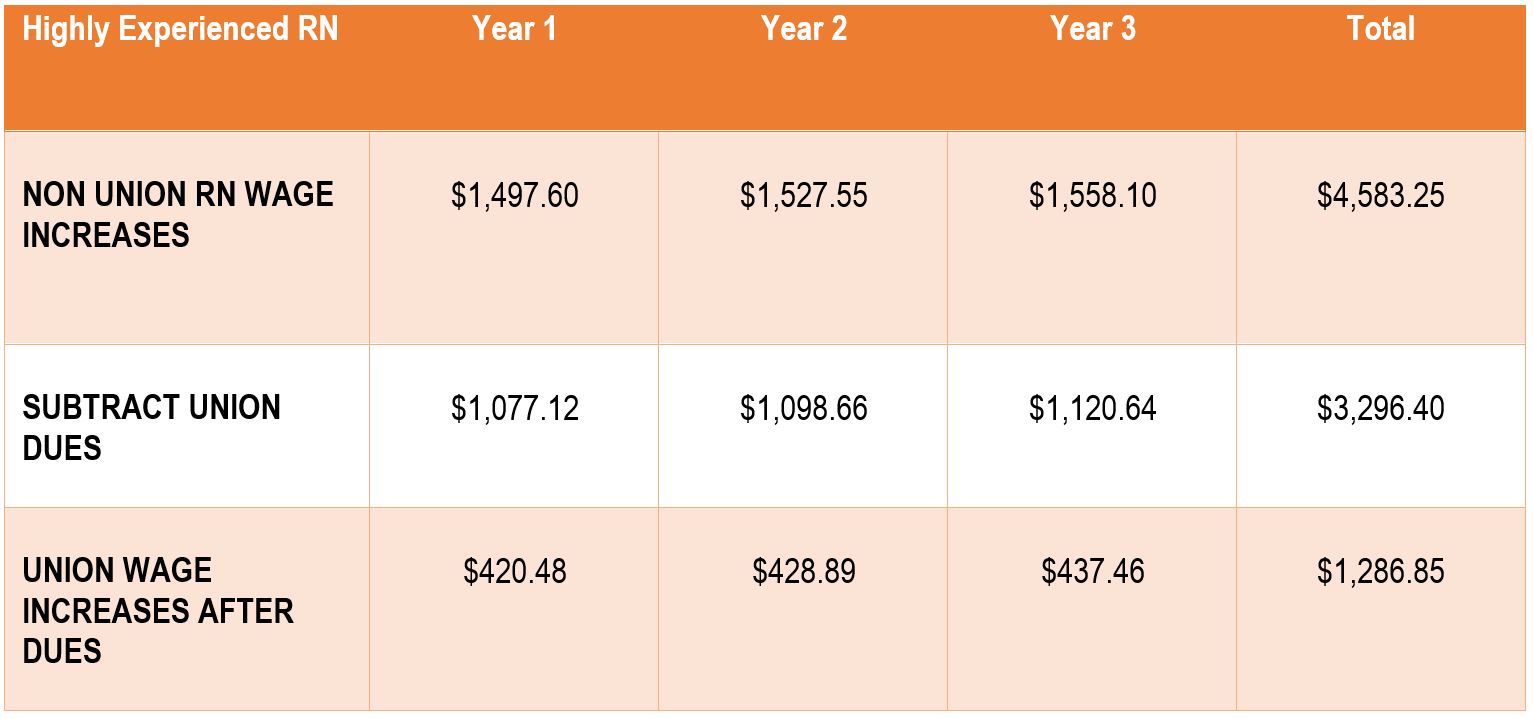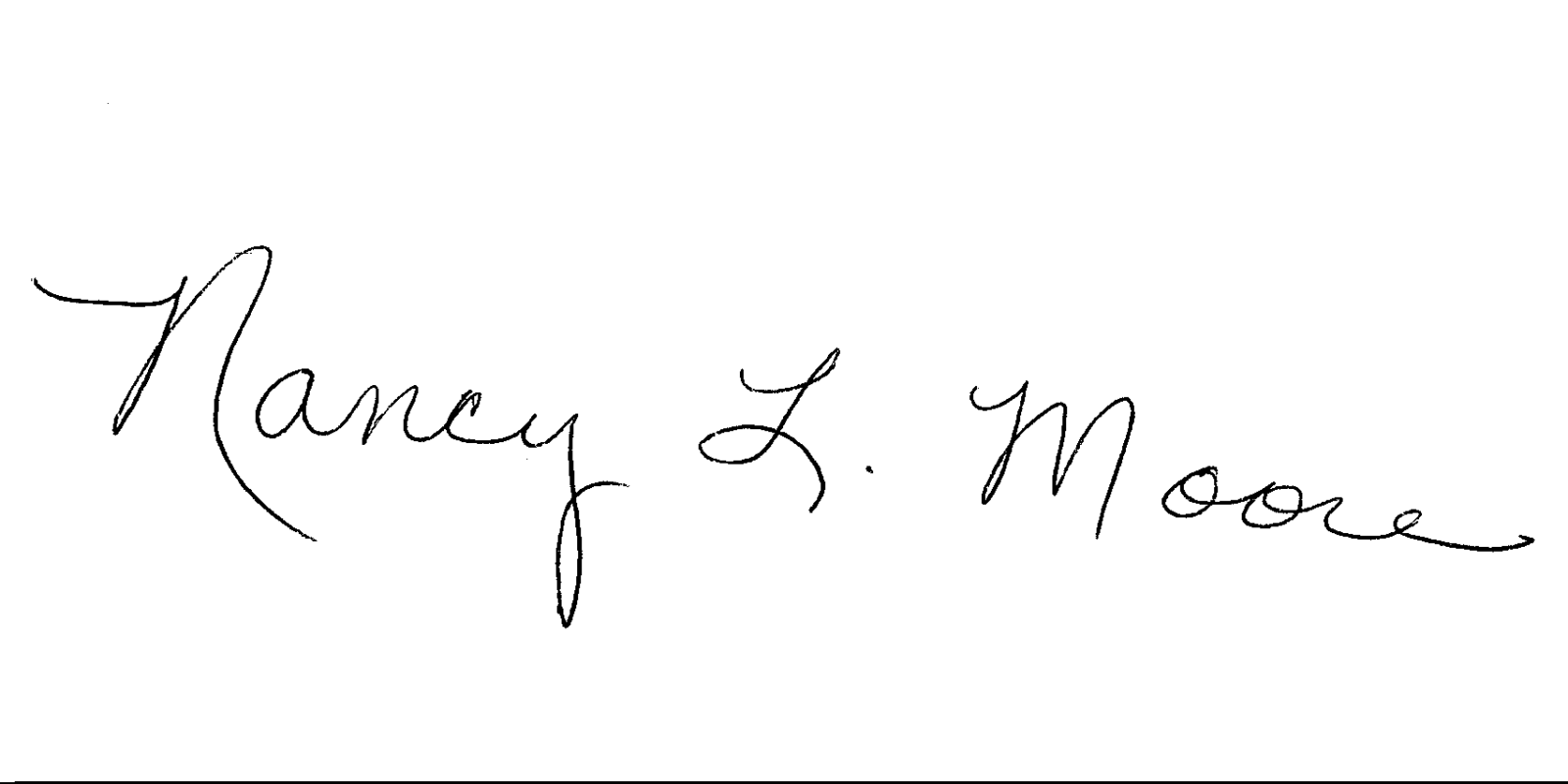Author: Scott Liscomb
1st Edition of The Journey Magazine
The first edition of Riverside’s magazine, The Journey is out now. The Journey features articles about Riverside’s excellent care teams, patient stories, health tips, and much more.
The Digital Edition of The Journey can be accessed below:
Additional FAQs – Nurse Information
When it comes to the subject of a union, Riverside leaders want you to make an informed, personal decision based on facts. Some additional frequently asked questions have been addressed below:
➡ Would staffing automatically improve if there was a union at Riverside?
No. In fact, the presence of a union and a requirement that all nurses pay union dues could negatively impact our ability to recruit and retain nurses.
We continue to work very hard to recruit and hire so we can fill existing nursing vacancies at Riverside. On the recruitment front, we have implemented several strategies to attract qualified candidates; these include:
- Enhanced utilization of social media to promote job openings,
- Video interviewing, and,
- Referral bonuses for RN’s and CNA’s
We also implemented measures to reduce workloads and allow nurses and nurse assistants to spend more time with patients. For example, the Central Transport Department now assists with transporting patients to tests and discharge, and we’ve hired Patient Safety Partners to assist with sitting.
All of these measures have a positive impact on staffing and our existing policies to follow all staffing regulations already in place in Illinois.
➡ What have we done to address staffing in terms of open positions?
Our recruitment team has been working hard to fill our open positions across the Riverside continuum. As a recap, the chart below outlines our external hires along with internal transfers and promotions from September 1, 2020 to March 1, 2021.

In addition, the referral bonus program assisted us with two of our RN hires and 5 of our CNA hires; so this has truly been a team Riverside effort!
➡ Would my work schedule automatically improve if there was a union at Riverside?
No. Unions tend to prefer that all decisions regarding things like scheduling be based on seniority. These types of rigid work rules might also prevent the kind of direct involvement our nurses currently enjoy in the scheduling process.
Today, Riverside nurses widely utilize self-scheduling. This means we have the flexibility to work with frontline staff to ensure their individual needs and staffing preferences are addressed and considered.
➡ Is it true that nursing strikes are rare?
No. In fact, the National Nurses United/National Nurses Organizing Committee (NNU/NNOC) has led nurses out on strike more than any other union representing RNs. In recent years, the NNU/NNOC has led nurses out on strike over 140 times (which includes the NNU/NNOC’s 2019 strike at the University of Chicago Medical Center).
If a union calls a strike, the union is required to first give the hospital a 10-day notice. This 10-day notice allows the hospital time to make preparations to ensure uninterrupted safe patient care (e.g., stop admissions, arrange for the transfer of patients, or arrange for temporary replacement staff). You can imagine the disruptions a strike – and even just preparing for a strike – can cause for the patients, families and staff who rely on us to care for their loved ones. They rely on us. They are our family, our friends, and our partners. We never want a strike at Riverside.
➡ If there is a strike, do we get paid? And would a strike affect our benefits?
Striking nurses do not receive a paycheck from the hospital, nor do they typically receive strike pay from the union. Depending on the duration of a strike, striking employees could have the option to continue their benefits through COBRA. However, COBRA rates for insurance are significantly higher (up to 102% of the employee plus employer cost) than full-time and part-time employee premiums. For example, the total cost for a full time employee in the Enhanced HSA plan is $933.92 per pay period. The employee pays $110 per pay period, and Riverside pays the remaining $823.92. Under COBRA, the employee would be responsible for the full amount plus 2% (or $2,063.96 per month).
➡ Wouldn’t we automatically make more money if there was a union at Riverside?
No. Union organizers can promise you anything – but the truth is there are no guarantees in collective bargaining.
At Riverside, we are committed to providing all employees with fair and competitive compensation. This is why we conduct regular salary and benefit market surveys. Increases to pay ranges generally occur with our performance year cycle and are generally effective in July each year. In fact, plans are already in place to increase the CNA and RN ranges in July 2021.
Even in the most difficult of financial circumstances of 2020, while other hospitals were not providing pay increases or 401K matches, Riverside employees were provided both the recognition payment (in May) and salary increases (in September). These increases are a testament to our commitment to provide fair and competitive compensation that recognizes and rewards your contribution to our success.
➡ I don’t think union dues are that expensive. What’s the big deal?
Mandatory union dues payments can impact take home pay. NNU/NNOC dues are 2.2 times the individual member’s base hourly rate per month, not to exceed $116.27 per month (or $1,395.24 per year).
For example, a new grad nurse would be expected to pay approximately $750.00 per year, while a very tenured nurse would be expected to pay approximately $1,10.00 per year. At either end of the spectrum, union dues payments are significant, considering there are no guarantees you would get any more than you have now.
➡ What is the difference between union and non-union compensation?
One big difference is how union dues payments can impact take-home pay. The chart below shows what a non-union full-time new graduate BSN nurse with a base rate of $27.50 per hour might receive if the employee received a 2.0% wage increase each year (over three years):
The chart below shows what a unionized full-time (.9 FTE) new graduate BSN nurse with the base rate of $27.50 might receive if the employee received a 2.0% wage increase over 3 years but was also required to pay union dues (2.2 times base hourly rate per month).

Union dues payments can impact the take-home pay of long-term employees as well. Let’s take a look at wage increases for a very experienced full-time (.9 FTE) Riverside RN making a base rate of $40.00/hour, and the impact if this nurse was required to pay union dues (2.2 times base hour rate per month). As the table below indicates, if this employee received 2.0% increases in each of three years, but his/her base salary would increase by over $4,500.00.

As you can see, the union employee takes home a lot less ($3,296.40 less over three years). Experienced nurses who make more money pay more union dues.
What Magnet Means to Me
“I would say that I have been on the Magnet Council for several years now, and I enjoy my time working with the other nurses throughout the hospital. Not only does being on the Magnet Council keep me informed of all the amazing work going on throughout the hospital, but it also gets me to critically think about what I can do to better the care I am giving to my patients. I love being able to sit down with my peers and look at the care we are giving and think of ways that we can improve, or to just look at the data and see how wonderful we are doing, such as having no CAUTI’s for the entire year. I think that being a Magnet nurse has made me realize all of the little things I can do to ensure the quality of care I am giving to my patients is excellent.” – Alicia Arseneau, Rehab RN
“Magnet nurses have increased autonomy because they have the knowledge to draw from when issues arise. Over the last 13 years, we have worked to strengthen governance so the direct care nurse has a voice over his or her practice. Simply put, if a nurse feels there is an obstacle, the first impulse isn’t to run up the chain of command, but instead bring in resources to problem-solve herself.” – Heather Petkunas MSN, MHA NE-BC, Mgr. Professional Practice and Clinical Support Services
“I LOVE that once a month I get to sit with nurses from all over the organization. It helps me to stay current on what is going on with the other units, has helped me feel connected to the hospital, and boosted not only my knowledge but my confidence. In return, I bring back to my fellow colleagues the information that we and the rest of the councils are working on. As a nurse in behavioral medicine, letting others know what our challenges are not only gives them a glimpse into our world but I receive ideas and feedback that may improve the quality of care and patient satisfaction. I was lucky enough to present at Shark Tank a few years ago. To know that what we as nurses and staff at Riverside would have our ideas heard and possibly implemented was a great feeling. I am extremely focused on patient/staff safety and in the Quality and Safety Council we make a difference!” – Joslyn Dexter RN -Registered Nurse Outpatient Behavioral Medicine Services, Pathways
“Magnet hospitals outperform other hospitals nationwide for clinical outcomes, patient satisfaction, and nursing satisfaction by focusing on best practices inpatient care. Being part of a Magnet organization inspires nurses like me to make a difference in not only the care we provide to patients but also in the tools and education provided for nursing staff. Magnet has allowed me the opportunity to participate in and chair Magnet councils where many frontline nurses make decisions about their own practice and help shape the future of their workplace. It has allowed me to make changes in my work environment through research projects and education. It encourages nurses to keep making continuous improvements as we strive towards excellence, which is definitely my mission as a Quality Improvement Nurse. Magnet supports nurses having a voice and empowers nurses like me to transform healthcare.” – Kristi Behrends, MSN, RN, Quality Improvement/Stroke Coordinator
A Magnet® culture: Innovations and Changes due to bedside nurse feedback in our shared governance structures based upon 2018 and 2019 annual reports (attached) include:
1. Input to design, educate and monitor our sepsis protocols resulting in nationally recognized 5-star patient outcomes from HealthGrades.
2. Developed and implemented a pilot for a Night Shift Educator position which was filled in late 2018.
3. In 2018, RMG Council developed a standardized sample medication label and patient education process using Epic, which resulted in 99% compliance by 2020 and transitioned to maintenance mode in clinics.
4. Behavioral Health bedside RNs proposed the purchase of Kindles/tablets available for patient use on the Mental Health Unit and this purchase of 15 tablets was made in late 2018 for 2019 implementation.
5. Senior Behavioral Health has been doing stay interviews most of the year as designed and recommended by two councils’ bedside RNs. Their Employee Engagement Index increased from 4.88 in 2017 to 5.13 in 2018 and Turnover is down from 22% in 2017 to 15% YTD.
6. Councils elicited training needs from the health system and aligned:
- Tuition discounts, increasing the amount of nursing excellence funding to match tuition reimbursement in 1/2020 (allowing full-time nurses to receive up to $6000 annually if using both nursing excellence funding AND tuition reimbursement).
- Obtained and offered CE Direct and Success Pays, which allows for RNs to complete certification review courses and nurse certification exams with no out of pocket expense.
- Full-time nurses (and APNs) are eligible for up to $500 for certification/professional organization memberships annually.
- These funds’ processes and approval are all administered via one of our shared governance councils.
7. Councils conducted surveys to identify developmental needs and then hosted skills days to improve confidence and competence for various departments annually.
8. Revised the Epic Acuity tool to meet the needs of the patients. The council continues to work with nurses and the EPIC build team to PDCA the new acuity tool. Note: this is a pain point as there is a perception that we manage to the staffing grid vs. using the acuity tool or using together.
9. Implemented a new Transition to Practice cohort training approach for new grad RNs in 2020.
10. Implemented a new 12-week orientation for nurse practitioners in RMG—developed via NP feedback.
11. Created regular shared governance NP meetings to allow for continuing education and practice support/feedback. These meetings are lead by NPs.
12. 2019 Annual Report: The Unit Based Councils continue to work hard at analyzing and creating action plans to reduce falls. Rehab and MHU-Adolescent made huge progress in decreasing their fall rates.
13. The council worked with the Vascular Access Team on implementing new IV catheters called Nexiva. Rainie Doolin (bedside VAT RN) will present the results to the council at the November council. We implemented Nexiva housewide in 2020.
14. UV Box and Xenex Tent – presented by Infection Prevention RN for approval to senior mgmt. Approved and in use in early 2020.
15. Bedside RN from OR (Mellody McDonald) presented Child-friendly tablets for perioperative areas to Senior Management in 2019, and was approved and funded in late 2019 for implementation.
16. Case Management RNs requested assistance for patient transportation at time of discharge. Funding and support by senior management was approved in 2019 for the Medivan to be used to transport patients from the hospital to home with a goal of transporting 2 patients a day Monday-Friday.
17. Bedside RN with Research Analyst conducted a Riverside Professional Nurse Evidence Based Practice Study. Findings include Riverside nurses believing in EBP but implementation (connecting evidence to practice at the bedside) is an area of opportunity.
United Way: Change doesn’t happen alone. We need you!
<p class=MsoNormal><span style='font-size:10.5pt;font-family:"Open Sans";
color:#333333;background:white'><span style='mso-spacerun:yes'> </span>
It’s the last stretch of our United Way campaign. This year, we came together in a BIG way to help our community. Let’s keep our momentum going.
Every gift counts. Join us and make your gift by December 31.
If you haven’t yet given, pledge forms are available for download here. They are also available on Rivernet or from Nancy Moore. Completed forms can be sent to Nancy Moore or Human Resources.
Thank you for your continued support,

Riverside Healthcare
United Way Campaign Chair
United Way: Let’s strengthen our community, together
<p class=MsoNormal><span style='font-size:10.5pt;font-family:"Open Sans";
color:#333333;background:white'><span style='mso-spacerun:yes'> </span>
We’ve made great progress towards Riverside’s campaign goal. But we still need your help.
There is still time for you to make an impact in your community. Helping people in our community thrive is what United Way fights for every day.
Make your pledge today to building a stronger, healthier region. When we LIVE UNITED, you help local people thrive. Whether that’s finding solutions to hunger, supporting kids who need extra support in school, helping people who are homeless, addressing community-wide trauma, or other social crisis – it’s about standing up to the complex causes of our region’s most daunting problems.
Already made your gift to United Way? Thank you for your continued support and devotion to your neighbors.
If you haven’t yet given, pledge forms are available for download here. They are also available on Rivernet or from Nancy Moore. Completed forms can be sent to Nancy Moore or Human Resources.
We’re almost to the finish line!
Thank you,

Riverside Healthcare
United Way Campaign Chair

